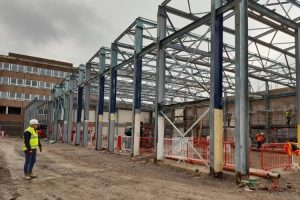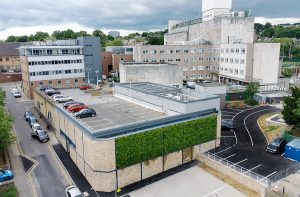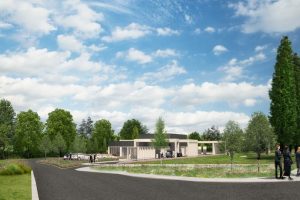As part of UKREiiF 2025, Procure Partnerships Framework hosted a high-level roundtable discussion exploring the critical role of public-private collaboration in driving community-focused regeneration and innovation. The session brought together representatives from local authorities—including Doncaster, Hull, Newcastle, and Halton to name a few—alongside contractors and professional services such as Vinci and Muse, to explore how strategic partnerships can unlock greater social and economic value.
Funding is Increasing But So Are Delivery Challenges
The discussion opened with a shared recognition that while increased funding is being allocated to local authorities, its fragmented nature. This, coupled with delivery deadlines and rising costs, continues to present major challenges. Many councils face constraints around internal capacity and resourcing which has created an increasing reliance on private sector support to move schemes forward. It was widely agreed that without external collaboration, many of today’s regeneration ambitions would stall before reaching site.
The Importance of Consistent Leadership and Shared Goals
The conversation repeatedly returned to the importance of long-term, strategic partnerships. Successful projects are underpinned by consistent leadership and aligned objectives particularly in an evolving landscape where local needs and priorities can shift over time. One example raised was the University of Leeds’ net-zero development, where a shift in student expectations towards sustainability significantly shaped project outcomes. Here, a committed project champion helped maintain momentum and drive vision across delivery phases.
Devolution and the Push for Localised Control
Political volatility and devolution dynamics were also highlighted as key influences on delivery. Devolution was highlighted as both a catalyst and a challenge in the current regeneration landscape. While it offers local authorities greater autonomy and access to targeted funding, it also creates a highly competitive environment, with many councils chasing the same pots of money.
The discussion acknowledged that regions like Greater Manchester have made significant progress in capitalising on devolved powers, while others—such as Liverpool—are still catching up. This disparity reinforces the need for clear, outcomes-driven proposals that demonstrate long-term community impact.
Regeneration That Prioritises People, Not Just Property
When it comes to regeneration, placemaking was positioned as a long-term commitment. Attendees reflected on the lessons of past regeneration strategies that prioritised increasing property values, café culture and office spaces which was sometimes perceived as displacement. There was broad agreement that modern regeneration must strike a balance in attracting new residents while retaining and supporting existing communities. This has sparked a move away from prioritising student accommodation and towards housing-led, mixed-use schemes.
The challenge of retaining post-graduate talent was also raised, with cities struggling to provide affordable and attractive housing for young professionals. Purpose-built rental accommodation tailored to graduates, offering quality housing, was suggested as one way to retain graduates and ensure regeneration delivers long-term value.
The Role of the Private Sector
Private sector involvement was identified as a vital to successful regeneration—particularly in the early stages of project development. It’s essential for predevelopment investment and shaping options appraisals and business cases, private partners help bring schemes to a shovel-ready state, which is often a essential for unlocking public funding.
Their agility and ability to maintain momentum amid political changes were highlighted as key advantages. While some local authorities have historically been hesitant to engage with private developers, this perception is clearly shifting. There is now growing recognition of the value and expertise that private partners bring—not just in delivery, but in shaping viable, community-led regeneration strategies.
Joint ventures (JVs) were cited as particularly effective partnership models, enabling shared risk and alignment of long-term objectives. Manchester’s JV-led regeneration approach was referenced as a success story, while Muse was highlighted as a private partner delivering tangible impact across various projects. Another notable example was Sefton’s strategic partnership with local colleges, which took a blended approach to community engagement and skills development—driving both footfall and local benefit.
Sharing The Mission
Throughout the discussion, one clear message emerged: the complexity of today’s challenges—funding uncertainty, housing affordability, climate goals—requires shared responsibility. Councils can’t deliver in isolation, and the private sector cannot succeed without understanding local context and priorities. By fostering meaningful, long-term collaboration, public and private partners have the potential to create resilient, inclusive communities that serve today’s needs while planning for tomorrow’s opportunities.
As this roundtable demonstrated, the road to successful regeneration is rarely straightforward—but through partnership, it can be made possible.
Reflections from Attendees
Among those sharing their perspectives on the day was Megan Powell Vreeswijk, CEO of Marketing Nottingham and Nottinghamshire, and Damian Cooke from Halton Council, who reflected on the importance of collaborative approaches to regional growth and innovation:
“The round table discussion highlighted a shared optimism around the power of public-private partnerships to drive regeneration, tackle delivery challenges, and create lasting community value. The mood around the table was overwhelmingly positive, with strong support for deeper collaboration as a vital enabler of innovation, inclusive growth, and place-led transformation.So much so, we are already working across Nottinghamshire to implement much of the best practice that was shared.”
Megan Powell Vreeswijk, CEO of Marketing Nottingham and Nottinghamshire
“The conversation was really interesting and spanned a number of topics, from funding and viability, to how the public and private sector can work better together, but what was most refreshing was to be part of a discussion that focused on the long-term outcomes for people and communities. What stood out in this roundtable was the collective consideration of how developments can deliver real, lasting value for local people, whether that’s through housing, education, or economic opportunity, which is ultimately why we work in regeneration – to improve people’s lives.”
Damian Cooke, Director of Economy, Enterprise and Property, Halton Borough Council



